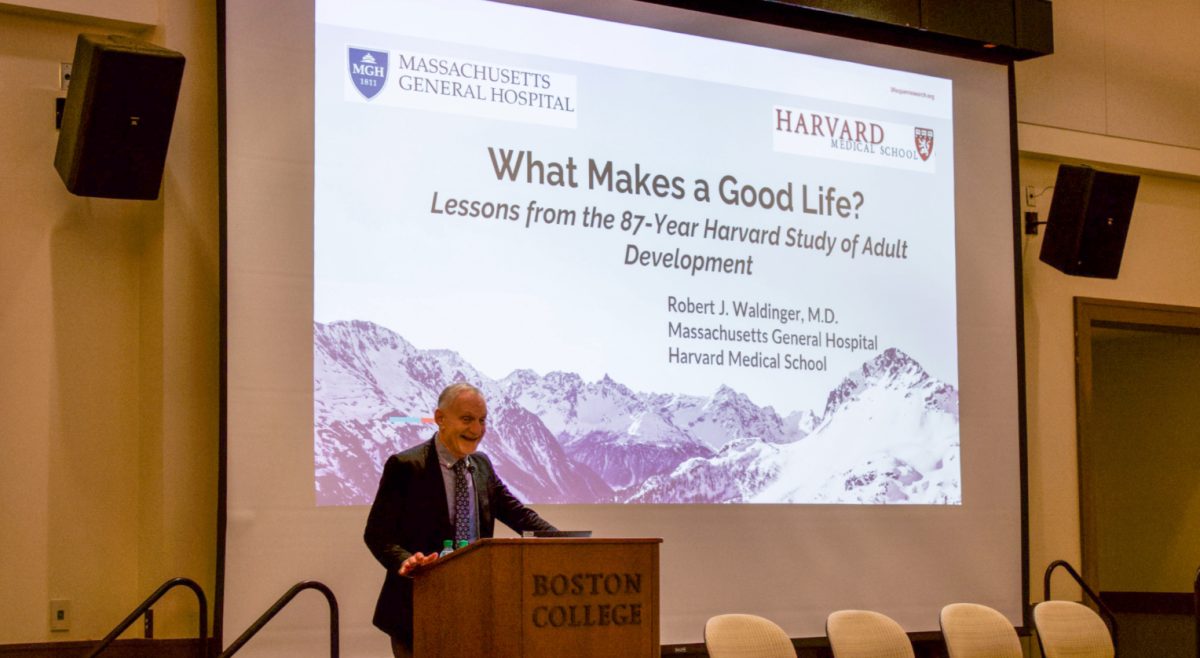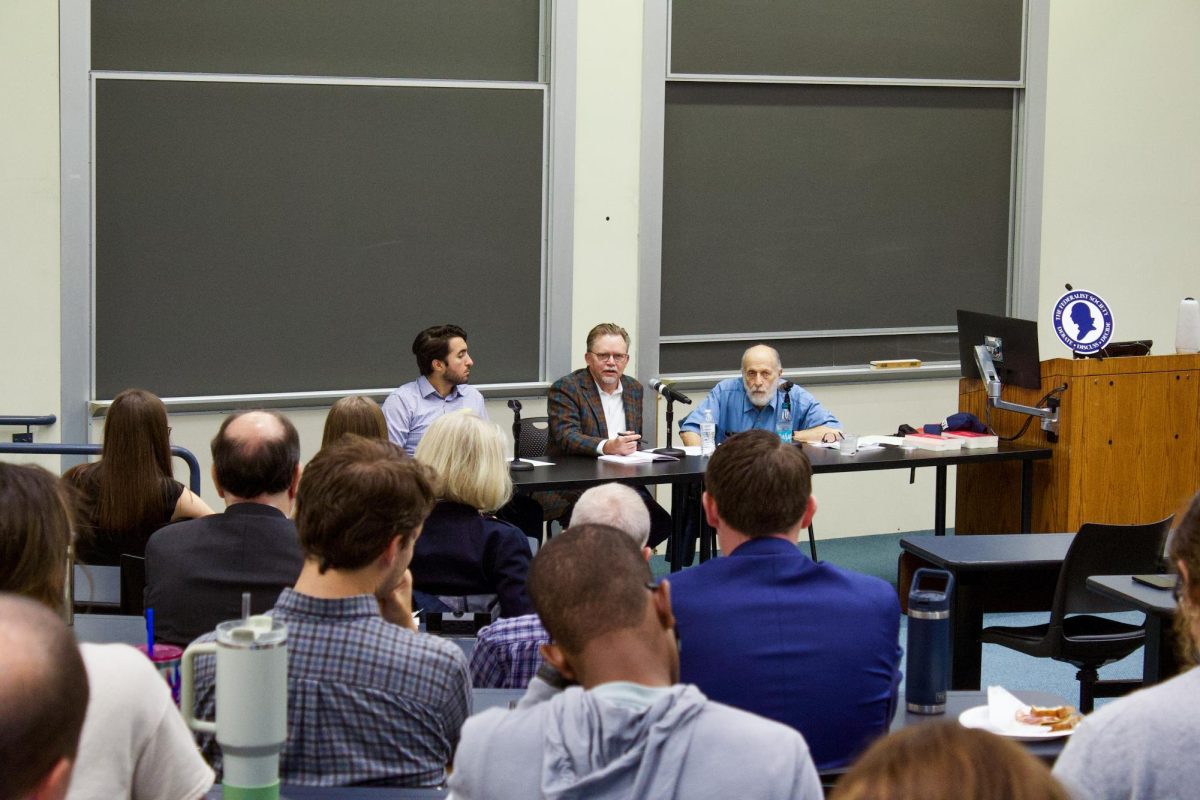Loneliness, an issue all too prevalent in America, is as harmful to people’s health and lifespan as smoking, high blood pressure, and obesity, according to psychiatrist Robert Waldinger.
“Loneliness is as powerful a risk factor for poor health as smoking half a pack of cigarettes a day over many years, as having untreated high blood pressure, as being obese,” Waldinger said. “Intimacy actually keeps us alive.”
To kick off the week-long “Flourishing Together” conference, Waldinger, a clinical professor of psychiatry at Harvard Medical School and the director of the Harvard Study of Adult Development, shared findings from the long-running study on health and happiness aging at a talk Monday morning.
Now in its 87th year, the study has followed more than 700 men and now focuses on the children of the original participants. One main finding of Waldinger’s research is relationships and their effects on participants’ overall happiness and health.
“What was a surprise that we first didn’t believe was that the people who lived the longest, stayed the happiest, but also stayed the healthiest, were the people who were most connected to other people—people who literally saw more people in a given week and who had warmer relationships with other people,” Waldinger said.
Despite the emphasis society places on relationships and happiness, loneliness is still a major issue, according to Waldinger.
“One in four people said there was nobody on the planet they could talk to about personal issues,” Waldinger said.
Isolation takes a toll not just on mental health, but also physical well-being, shortening lifespan, and diminishing people’s ability to work, Waldinger added.
“Loneliness does not discriminate,” Waldinger said. “People of all ages, ethnicities, and backgrounds are vulnerable, so—casting that in Boston College terms—faculty, staff, and students can be subject to experience loneliness.”
Social isolation and loneliness are chronic stressors, putting the body into a constant state of fight or flight, according to Waldinger.
“[They] seem to have a kind of low-level flight or fight response going on all the time so that they don’t ever go back to that equilibrium physiologically,” Waldinger said.
Waldinger attributed the ongoing “loneliness epidemic” largely to social media and the tendency it creates for people to compare themselves to others.
“It has a lot to do with the cultural haze that we all exist in, in which really we’re bombarded with messages about what your life is supposed to be and what it’s supposed to look like,” Waldinger said. “Social media has undoubtedly fueled this.”
Waldinger also studies metrics and factors that help individuals feel less stressed and lonely, improving their health and well-being. At the center of the solutions is cultivating human connection, he said.
“We know that family dinners are hugely impactful for child development,” Waldinger said. “Workplaces can be constructed so that the culture is one of collaboration, of friendship development, rather than isolation and competition. And, of course, volunteering in the community is hugely impactful for well-being.”
Prioritizing experiences over material possessions leads to more lasting happiness, according to Waldinger.
“The best things in life are not things,” Waldinger said. “We are happier and we’re happier for longer when we spend our discretionary income on experiences.”
Waldinger emphasized that focusing on relationships and connection is key to building a happy, healthy, and fulfilling life.
“Technology has the power to isolate or connect us,” Waldinger said. “Make choices every moment to turn toward the voices that make us feel more open to each other and turn away from those voices that make us feel more disconnected.”







